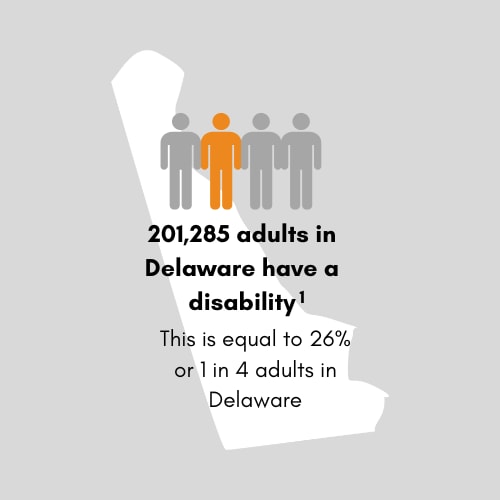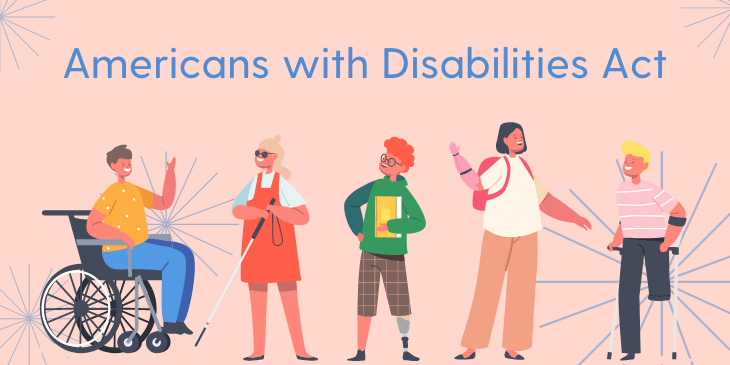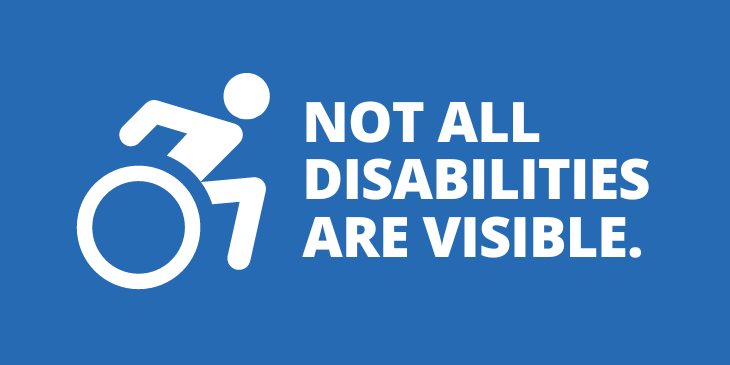The ADA Anniversary is a special day celebrating the Americans with Disabilities Act. It happens every year on July 26th. This day reminds us of our progress in giving rights and opportunities to people with disabilities.
The ADA has made a big difference in many lives by promoting fairness, and accessibility, and treating everyone equally. The anniversary is also a time to recognize that there’s still work to be done to make society more inclusive and remove barriers for people with disabilities. It’s a chance to honor the strength of individuals with disabilities and show our commitment to a fair and just society where everyone is valued and included.
The Americans with Disabilities Act (ADA), is a law in the United States that helps protect the rights of people with disabilities. The ADA was founded in 1990 to ensure everyone with disabilities is treated equally in areas such as employment, education, transportation and public places. It promotes inclusivity and accessibility, contributing to a more equitable society for everyone, regardless of their abilities.
Disabilities in the United States
Sixty-one million adults in the US live with a disability. It’s important to note that the number of adults living with a disability can vary depending on the definition and measurement used.
The Centers for Disease Control and Prevention (CDC) collects data from a variety of places to accurately measure the prevalence of various disabilities, including the Disability and Health Data System (DHDS) and the Behavioral Risk Factor Surveillance System (BRFSS). Sometimes, whole states are left out of the data, leaving the full picture incomplete. For example, Florida was unable to collect BRFSS data over enough months to meet the minimum requirements for inclusion in the 2021 annual aggregate data set; therefore, 2021 DHDS has no report on all DHDS indicators from Florida. (Source: Disability and Health Data System (DHDS)
Disabilities In Delaware

According to the Centers for Disease Control and Prevention (CDC) 25% of Delawareans have a documented disability. Healthcare costs related to disabilities cost about $3.1 billian annually, or up to 34% of the state’s healthcare spending.
The University of Delaware’s Center for Disabilities Studies aims to improve the quality of life for individuals with disabilities and their families. They achieve this through education, advocacy, service, and research. The center aims to empower and provide opportunities for individuals with disabilities, ensuring accessibility and inclusiveness so that everyone can actively engage in their communities and contribute to their enrichment.
Accessibility Island
By removing the mental barriers we create, could we remove the barriers to accessibility? Maybe flipping the script on disability and reasonable accommodations can lead to greater understanding.
View the video from Accessibility.com to see things from another perspective.
Resources
- Office of Disability Support Services (DSS) at the University of Delaware facilitates appropriate and reasonable accommodations to incoming and current UD students, faculty, and staff with disabilities,
- The ADA National Network consists of 10 regional ADA Centers and an ADA Knowledge Translation Center. The regional ADA Centers are distributed throughout the United States to provide local assistance and foster implementation of the ADA. Find the ADA Center that serves your state by visiting this page: https://adata.org/find-your-region

